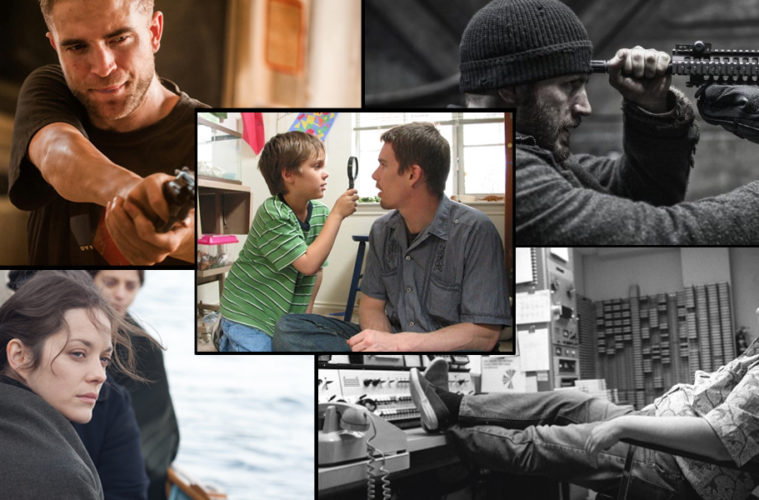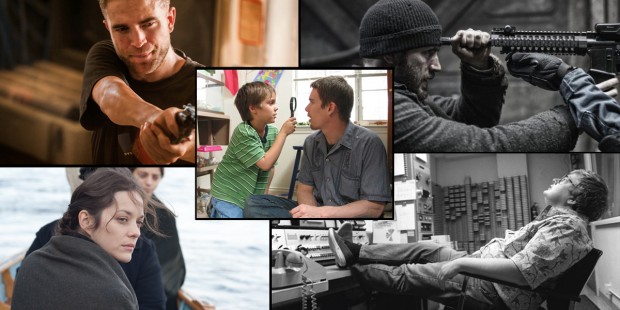
With The Grand Budapest Hotel, Only Lovers Left Alive, Under the Skin, and more, it’s been a remarkably strong start to the year and things look to continue during the summer season. While there’s a handful of studio releases that at least have our attention (Godzilla, Jupiter Ascending, 22 Jump Street, Jersey Boys), the gold looks to once again lie in limited releases, and we’ve highlighted 40 that should be on your radar in the coming months.
While this notion applies to the theatrical distribution, it’s easier than ever to access a bulk of the films on VOD as they release, so stay tuned to our weekly feature showcasing those specific titles. Beginning this Friday, May 2nd, and going up to the last weekend in August (including exclusive release news on one of our favorite festival films from last year), check out the rundown below and let us know what you’re most looking forward to.
Ida (Pawel Pawlikowski; May 2nd)
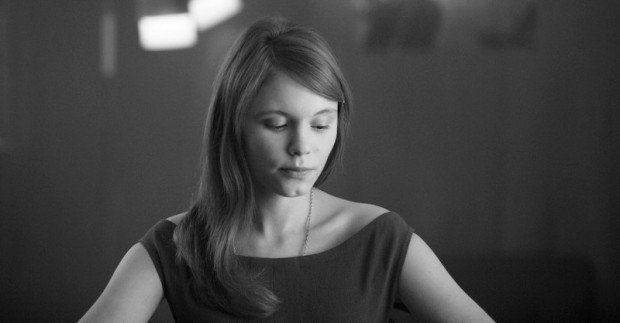
It seems as though Hollywood has a yearly quota for World War II dramas, ones that often present the heroic military efforts of the Allies, or others that zero in a feel-good aspect, perhaps following a protagonist who survives by any means necessary. Rarely do we see a film tackle the aftermath of the unspeakable horrors from distinctly different points of view, but Pawel Pawlikowski does so with restrained artistry in his Polish drama Ida. – Jordan R. (full review)
The Double (Richard Ayoade; May 9th)
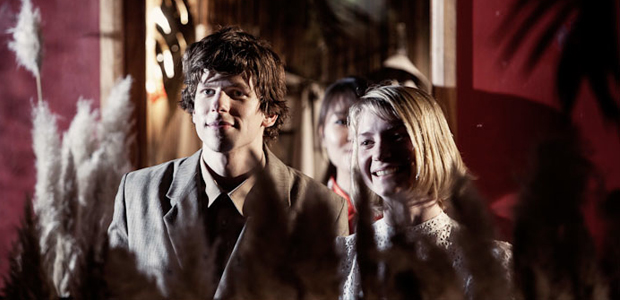
Comically dry like director Richard Ayoade‘s debut, Submarine, his sophomore effort takes more than a few steps towards an even more arid realm of complete existentialist surrealism. As adapted by the helmer and Avi Korine, The Double brings Fyodor Dostoyevsky‘s novella to the big screen with a surefire confidence in its visual form and an eccentric comedy that should go a long way towards securing the IT Crowd star as a permanent, unique voice in contemporary cinema. There is a definite stylistic kinship to his first film, pairing it well with this one’s descent into a psychological conflict of identity: every waking second of Simon James’ (Jesse Eisenberg) entire existence shatters with the introduction of a confidently superior doppelgänger named James Simon. – Jared M. (full review)
Palo Alto (Gia Coppola; May 9th)
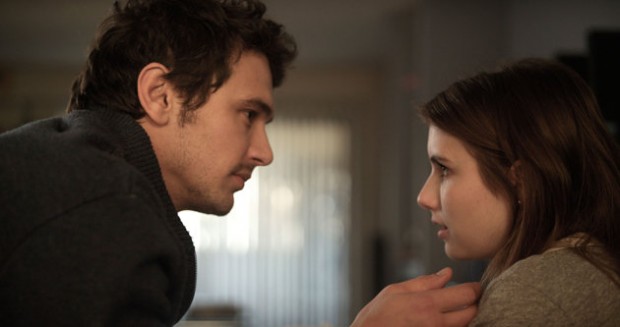
While some might brush this off as one of countless projects James Franco is yet again involved with this year, Palo Alto actually proves to be one of his most well-realized collaborations. Based on a series of short stories from Franco, the multiple, but intersecting storylines explore suburban life as a teenager in California. Marking Gia Coppola‘s directorial debut, a few nods are certainly taken from her aunt’s work, but the film establishes her as an authentic, independent voice that we’re looking forward to seeing more from. – Jordan R.
The Immigrant (James Gray; May 16th)
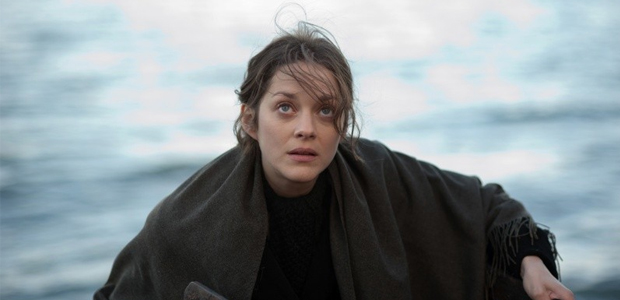
Set in 1921 New York, The Immigrant is writer-director James Gray‘s sprawling tale of an American dream gone awry. Immaculate production design and stunning cinematography byDarius Khondji evoke the era-appropriate atmosphere in a manner not at all dissimilar fromGordon Willis‘ design of The Godfather Part II. The final effect is a film laden with nostalgia that feels ripped right from the past, making way for its own unique examination of a transformative period in American history. Known for his character-rich stories, Gray weaves a compelling yarn of two Polish sisters who encounter unforeseen complications when trying to immigrate at Ellis island: a parable about what makes the United States a complex paradox of capitalist dreams and hopes held both by everyday citizens and those aspiring to become one. – Raffi A. (full review)
Tracks (John Curran; May 23rd)
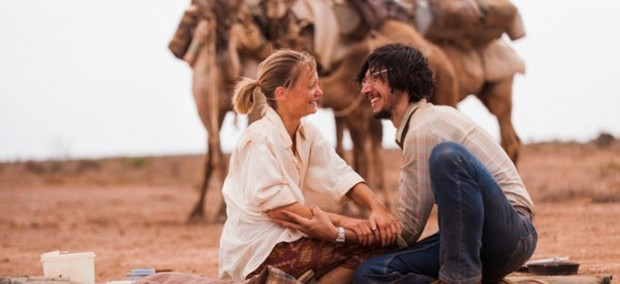
A stunningly beautiful film, director John Curran‘s Tracks traces the physical and psychological 1,700-mile trek of Robyn Davidson (Mia Wasikowska) from the central Australian town of Alice Springs to the Indian Ocean. As masterfully shot by Mandy Walker, the film has images that, at times, are lucid, while its structure and Curran’s direction takes little risks. Inspired by an award-winning 1980 account (expanded from a National Geographic article published in 1979), Tracks allows us to share a journey that shaped Robyn, an awkward young woman who survived in Alice Springs doing odd jobs in exchange for a camel. – John F. (full review)
The Dance of Reality (Alejandro Jodorowsky; May 23rd)
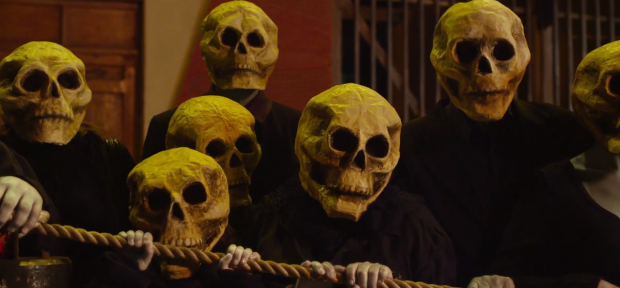
One of the most revered surreal and abstract filmmakers ever to grace the cinematic landscape,Alejandro Jodorowsky holds a deserved cult status. He is most famous for making two films in the early 1970s, El Topo and Holy Mountain, both of which feature some truly shocking imagery that drew comparisons to the early film work of Salvador Dali and Luis Bunuel. However, he has not made a film since 1990, leaving many of his ardent fans wondering if his career was finished. Twenty three laters he has returned with what may be his most personal and straight forward film to date. But fret not devoted fans of Jodorowsky, La Danza de la Realidad (The Dance of Reality) still features his signature avant-garde imagery which pushes the limits of what to expect from the unpredictable. – Raffi A. (full review)
Filth (Jon S. Baird; May 30th)
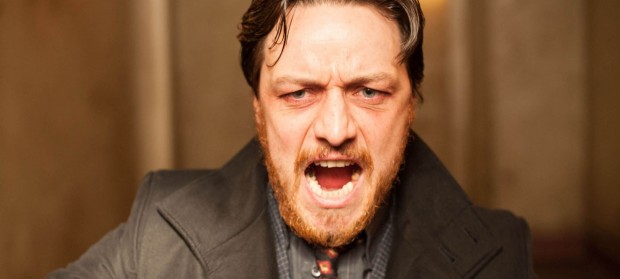
While most of his attention this summer will go to X-Men: Days of Future Past, one can see James McAvoy getting proper filthy as a corrupt policeman in this Irvine Welsh (author of Trainspotting) adaptation. Directed by Jon S. Baird, who helmed Cass and was a producer on Green Street Hooligans, the film is now available on demand before a theatrical release in May, so if you are looking for something rude and crude this summer, it’s hard to turn this one down. – Jordan R.
Korengal (Sebastian Junger; May 30th)

Four years ago Restrepo hit theaters, a documentary from Sebastian Junger and Tim Hetherington which gave us an intimate look at the life of 2nd Platoon of Battle Company during their 15-month duty in northeast Afghanistan. The film went on to earn an Oscar nomination and soon after, Hetherington was tragically killed while in Libya covering their 2011 civil war. Junger has now returned for a follow-up to the film titled Korengal, which incorporates unused footage from their 2007 shoot, and is currently crowdfunding for the widest release possible. – Jordan R.
Night Moves (Kelly Reichardt; May 30th)

For the first hour, Night Moves looks to be a piece with Reichardt’s past works, playing at first like a deconstruction of the heist film, but as the film goes on, it becomes clear that Night Moves is less interested in examining the genre than embracing it. Indeed, in an interview with Fandor, Reichardt cites the seminal Rififi as an influence and states that although she usually doesn’t think about genre during the writing stage, with Night Moves, she and frequent writing partner Jonathan Raymond “just got on board with the genre idea, even during the writing, and certainly in actual filmmaking.” The result is a good but unspectacular genre film, one that utilizes Reichardt’s naturalist style to encourage character interpretation, but it also fails to glean the gold underneath in the process. The reality being uncovered, the myth being debunked, and the psychology being unearthed are, if not missing, comparatively lacking. – Forrest C. (full review)
We Are the Best! (Lukas Moodysson; May 30th)
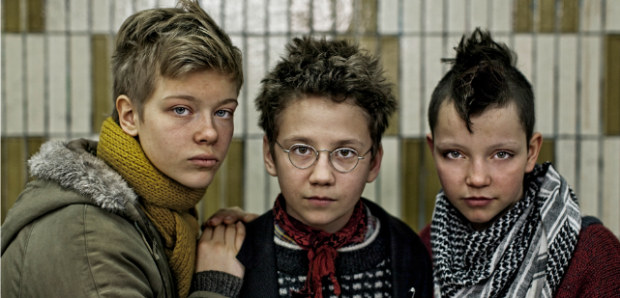
One of the more buzzed-about festival titles of recent months is We Are the Best!, a punk-rock period piece from Swedish helmer Lukas Moodysson that’s been called “a delightful snapshot of female friendship.” The film — based on a graphic novel from his own wife, Coco — uses Sweden circa 1982 to explore both stages of punk rock, friendship between young females, and the odd bonds which form between these two. What would potentially leave an endless amount of space for maudlin storytelling has, many will allege, been avoided herein ultimately making for, depending on where you live, one 2014′s first great titles. – Nick N.
Borgman (Alex van Warmerdam; June 6th)
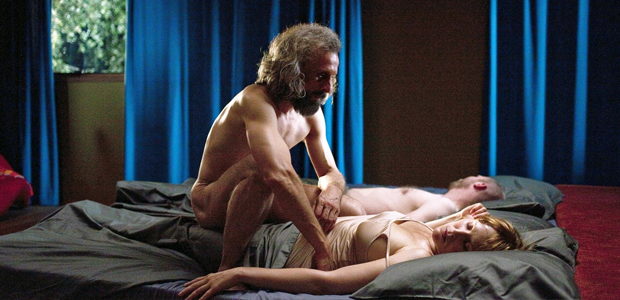
The less you know about Borgman, the better. All that matters is that it’s Dutch, it was the most bizarre film to play in the main competition of Cannes this year and it’s coming out next year courtesy of Drafthouse Films. Oh, and it’s a devilishly good time for fans of black comedy shenanigans. If any of that sounds at all intriguing, then definitely seek this film out and you’ll be sure to be both bewildered and delighted. All that’s left to say is: Gotta go Borgman. – Raffi A. (full review)
Obvious Child (Gillian Robespierre; June 6th)

Just when you thought the “Brooklyn in film” trope was tired and played-out on the festival circuit, here comes Obvious Child. Set primarily in Williamsburg, writer-director Gillian Robespierre‘s feature debut (adapted from her Sundance 2009 short of the same name) tells the story of Donna Stern (Jenny Slate), an aspiring stand-up comedian barely making ends meet. Donna is rude and crude and especially insightful, as is made abundantly clear at the film’s start, in which we watch our heroine perform on stage. – Dan M. (full review)
Dormant Beauty (Marco Bellocchio; June 6th)
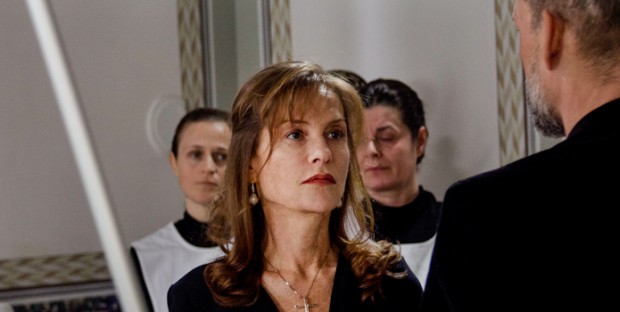
While her recent drama Abuse of Weakness is still awaiting U.S. distribution, another Isabelle Huppert drama will finally be hitting shores following a Venice Film Festival premiere back in 2012. From Italian director Marco Bellocchio, who brought us Vincere, Fists in the Pocket and Good Morning, Night, the film takes us through the true-life events of Eluana Englaro. The woman went into a vegetative state for 17 years and this drama takes a look at the final six days of her life as we bounce around between interconnected characters. The real-life event sparked many debates about euthanasia and with positive reviews throughout its long festival tour, we looking forward to its release. – Jordan R.
Ping Pong Summer (Michael Tully; June 6th)
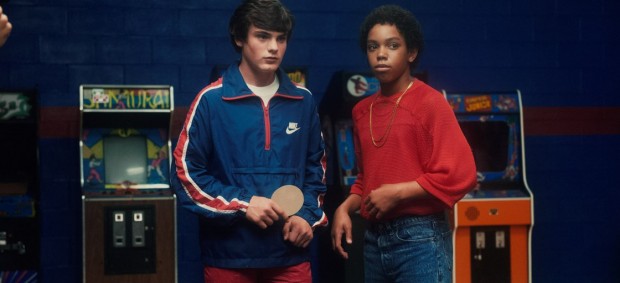
Nostalgia can be an unwieldy tool in the world of filmmaking. Few features manage to effectively capture the charms of a certain time period, either going overboard to the point of exhaustion or poking fun of them so much it starts to feel disingenuous. Thankfully, Ping Pong Summer, which premiered in the NEXT section at this year’s Sundance Film Festival, takes us back to the 1980’s with charm, reverence and light, fun humor. – Jordan R. (full review)
Hellion (Kat Candler; June 13th)
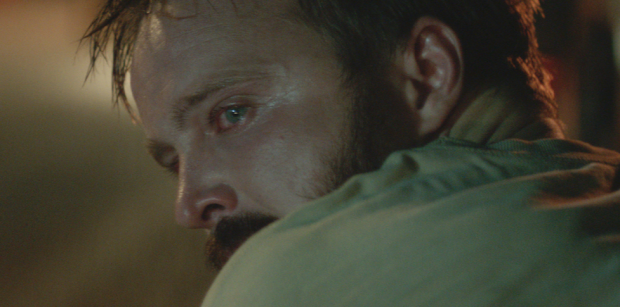
While his leading debut in a blockbuster crashed and burned with Need for Speed this spring, Breaking Bad‘s Aaron Paul has been receiving acclaim for this Sundance Film Festival drama. Directed by Kat Candler, Hellion finds the actor playing a single father who is struggling to put the pieces of his life together while raising two sons. With a cast also including Juliette Lewis, Josh Wiggins, Deke Garner, Jonny Mars, and Walt Roberts, Sundance Selects will be giving this one a limited debut in this summer. – Jordan R.
The Rover (David Michôd; June 13th)
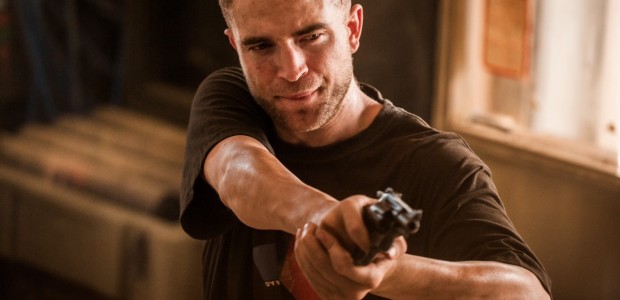
For (seemingly) diverging from the gangster territory of his narrative feature debut, Animal Kingdom, David Michôd gives the impression of a writer-director with little interest in sticking to the same formulas, no matter how successful they’ve proven. (Consider, however briefly, that his only other full-length project is a documentary about a missing kayaker.) Robert Pattinson and Guy Pearce going head-to-head in a desolate, near-future Australian outback, leading to… well, that much remains to be seen. Based on what little is known, it might pack more thrills than just about anything put in theaters during the sweltering season. – Nick N.
The Signal (William Eubank; June 13th)
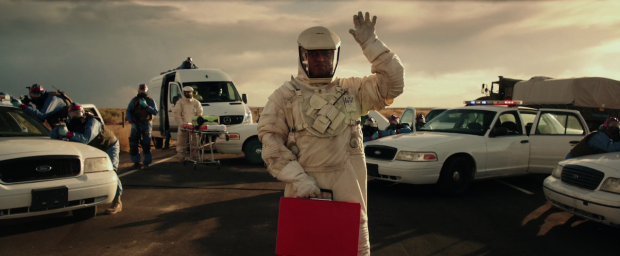
Inventive science-fiction films are very difficult to pull off, even more so when working with a small budget and limited resources. That didn’t stop director William Eubank (Love) from attempting to create something audacious with his second feature The Signal, a clever mash-up of sci-fi tropes resulting in a very commercial friendly product that will likely appeal to a broad audience. Add one dash of The Matrix, one part Chronicle and a little Dark City thrown in for good measure and you should have a sense of what kind of flavors The Signal is attempting to emulate. The story is also filled with some great misdirection resulting in some unexpected twists and turns that are genuinely surprising. Yet despite a healthy pedigree of movies that it draws from, The Signal is dulled by the fact that it borrows these concepts without innovating on them enough. – Raffi A. (full review)
Norte, the End of History (Lav Diaz; June 20th)
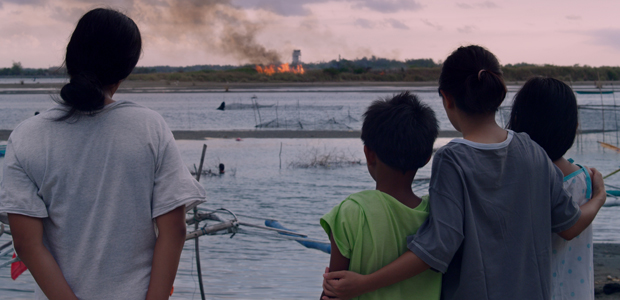
It’d be nice to discuss Lav Diaz’s latest without mentioning its runtime; four hours and ten minutes, which while reasonably short by his standards, will still likely scare off even a number of adventurous cinephiles. Yet the passage of time comes inevitable in actually engaging with it, as it’s intentionally most felt in the film’s strongest passage, in which its narrative strands stop at their seeming rigorous narrative and thematic development to simply depict life occurring at its own pace. Of course, considering the apocalypse it ultimately reaches, in which good and evil; a wrongfully torn-apart peasant family for the former, an existentially corrupted law student the latter, don’t see just ends, it comes easier to understand the film’s ultimate virtue; it’s lack of obsession with racing to its own ideological conclusions. – Ethan V.
Venus In Fur (Roman Polanski; June 20th)
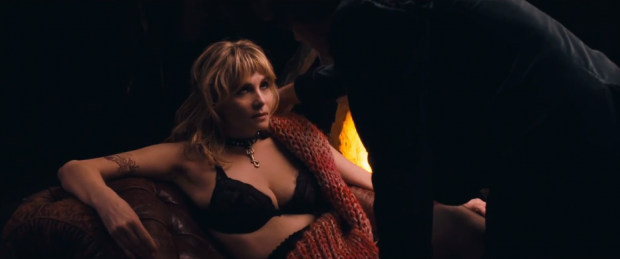
Even in an advanced age and with a slightly reduced rate of output, Roman Polanski is still considered one of the most influential filmmakers alive and operating. His previous film, Carnage, was adapted from a piece of theater by scribe Yasmina Reza and is constrained to a single interior location; following suit with similar meta-theatrics, Venus in Fur is the second adapted play for Polanski, this time taking from playwright David Ives‘ tale about an actress auditioning for a dominatrix-inspired role. Turning this into what could have easily been titled Fifty Shades of Polanski, he examines the roles of sexuality between a man and a woman. – Raffi A. (full review)
The Internet’s Own Boy: The Story of Aaron Swartz (Brian Knappenberger; June 27th)
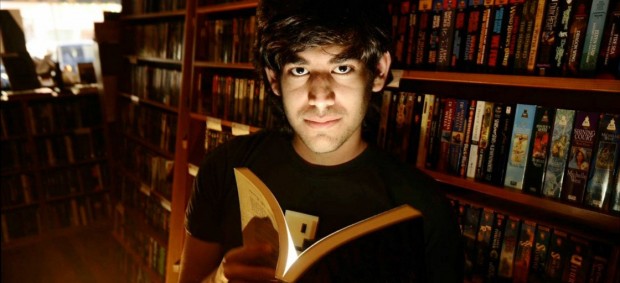
If you’ve been on the internet, there’s a chance you’ve used a service that Aaron Swartz has had a hand in. A co-founder of Reddit, a developer on RSS, an organizer of Creative Commons, and countless other services, he had a phenomenal impact on what we call the internet today. Sadly, his life was cut short as he committed suicide last January, presumably due to pressure following the efforts of the government to jail him for up to 35 years and fines in the millions because of harmlessly gathering data to academic journals at MIT. Directed by Brian Knappenberger, the documentary chronicling his life and auxiliary efforts around internet freedom is formally standard, but a powerful testament to Swartz’s effort, properly defining him as a hero. – Jordan R.
Snowpiercer (Bong Joon-ho; June 27th)
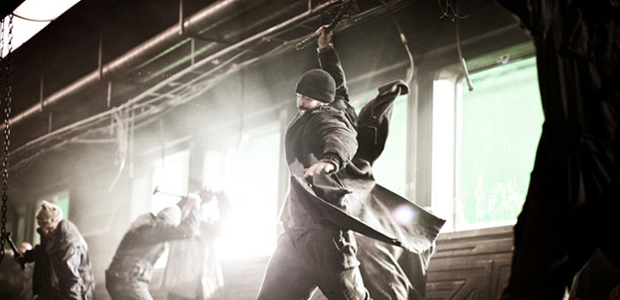
Mother didn’t arrive all that long ago, but so distended was the battle to get Snowpiercer’s original cut onto American shores that its release seems so monumental — for those who care, at least. While odds say you won’t get to experience Bong Joon-ho’s train-set dystopian epic on a big screen, your home theater will get a good exercise with what looks to be among the smartest actioners in recent years. Given the helmer’s near-supernatural ability to mix tones at the drop of a hat, prospects for a multi-part film about society’s last remnants are high indeed. Here’s hoping this transition into English-language filmmaking for a South Korean golden boy proves more Stoker and less The Last Stand. – Nick N.
They Came Together (David Wain; June 27th)
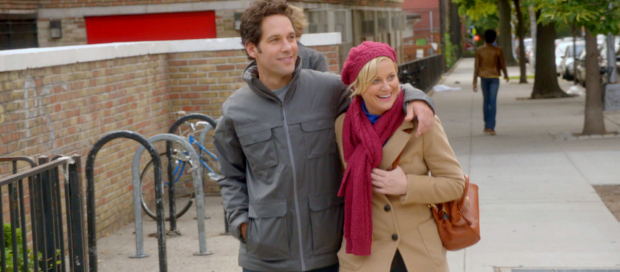
If Wanderlust proved one thing, it’s that David Wain continues to exert his oh-so-particular brand with the same strength of yesteryear. Hard as it normally is to quantify what, exactly, he (along with frequent collaborators) “does,” They Came Together’s pinpoint parody of romantic comedies sounds like an even-odder beast, that assumption bolstered by early world and first looks. That Paul Rudd and Amy Poehler working from a Wain- and Michael Showalter-penned script is something I wouldn’t miss, regardless, makes it among the most promising comedies of this summer, big or small. – Nick N.
Whitey: United States of America v. James J. Bulger (Joe Berlinger; June 27th)
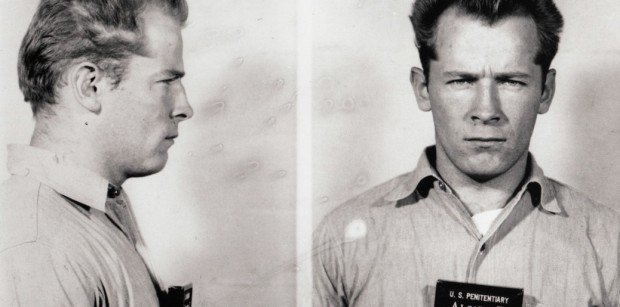
Joe Berlinger‘s sprawling and ambitious documentary tackles the trial of one of the countries most infamous criminal masterminds, James ‘Whitey’ Bulger. It is an explosive examination of the many players involved in his sprawling web of crime that spanned nearly thirty years. By carefully following the prosecutors, defense attorneys, thugs turned rats and family members of the victims seeking justice, the film weaves together an ornate tapestry of corruption that is a comprehensive exploration of a very complicated case. Insightful and revelatory, this documentary will surely fascinate anyone with any interest about the case or learning about the man who inspired Jack Nicholson‘s character in The Departed. – Raffi A.
Closed Curtain (Jafar Panahi; July 9th)
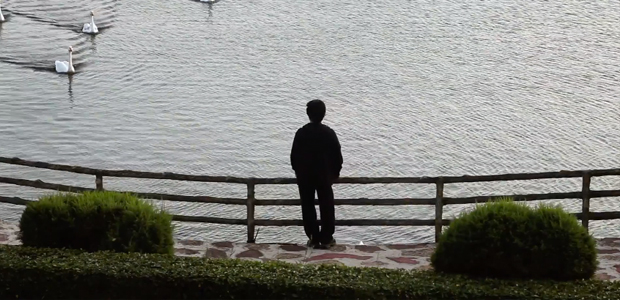
I can’t say much more now than I did in my full review, but Jafar Panahi’s Closed Curtain is a thrilling meditation on—literally—the liberating powers of cinema, an exploration of where hope comes from, and a chilling cry for help. What begins as a fiction slowly reveals itself to be a visualization of one filmmaker’s creative process, as well as a more fleshed out exploration of what constitutes a film and how digital technology can impact filmmaking that Panahi examined in his previous work, This Is Not A Film. That this one still doesn’t have a distribution deal is a travesty. – Forrest C. (full review)
Boyhood (Richard Linklater; July 11th)
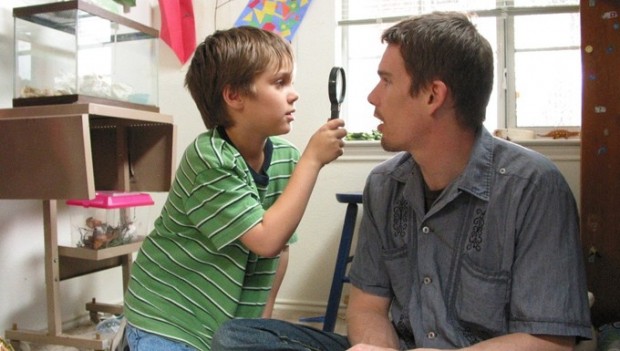
Exactly one year after completing his accomplished Before trilogy at Sundance, writer-directorRichard Linklater returns with Boyhood, a film 12 years in the making and worth every minute of the wait. Shot one week at a time over the course of a decade or so, Linklater explores the formative years of a young man named Mason, played by Ellar Coltrane. Born into separated parents, played by Patricia Arquette and Ethan Hawke (doing some of the best work in their careers), Mason represents some part of a childhood all of us have known. This is a film of many small moments, all added together to make something quite wonderful. – Dan M. (full review)
Land Ho! (Aaron Katz, Martha Stephens; July 11th)
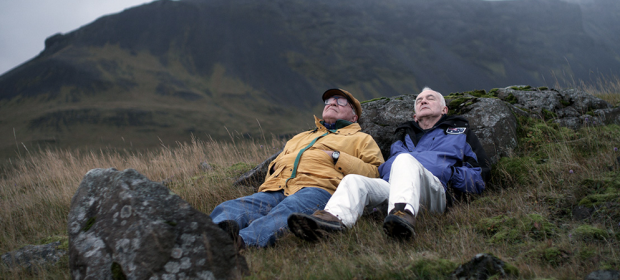
Following his break-out performance in last year’s restrained Sundance drama This is Martin Bonner, the talented Paul Eenhoorn has returned to the festival with Land Ho!, a lovely, hilarious, and beautifully photographed road trip comedy. While Eenhoorn provides the tender, more reserved half of the duo as Colin, it’s his ex-brother-in-law, Mitch (Earl Lynn Nelson), who steals the show as a foul-mouthed, perpetually horny, pot-smoking, recently retired doctor. – Jordan R. (full review)
Life Itself (Steve James; July 18th)
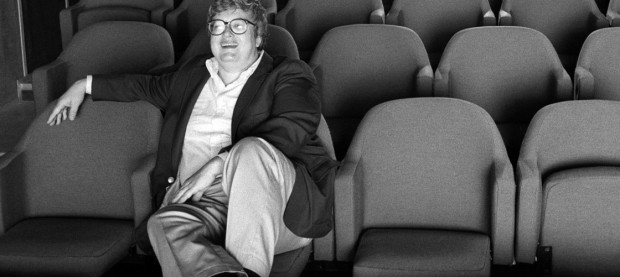
It’s only fitting that documentary filmmaker Steve James, of Hoop Dreams fame, was able to capture the iconic film critic Roger Ebert during the final months of his life. Ebert was one of the voices who championed Hoop Dreams and helped elevate it to a broader limelight, exposing it to audiences who very likely would have never heard of it — as he did with countless other films. It seems almost impossible for any film critic, filmmaker, or filmgoer not to have been in one way or another influenced by Ebert and his vocal opinions. Based loosely on his autobiography of the same name, Life Itself examines the man who was revered for his frank, direct, and articulate opinions on cinema. – Raffi A. (full review)
Mood Indigo (Michel Gondry; July 18th)
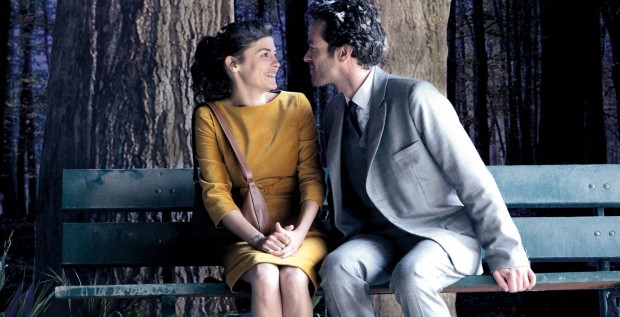
Whether it’s on account of the visual flair he showcases in this hyper-stylized alternative universe or, perhaps, through the frank manner some characters talk to each other, whimsical is the perfect adjective to describe Michel Gondry‘s latest film, Mood Indigo. Wild colors pepper the first half, and there’s an intense level of fun to be had throughout — but it’s not just visual flair. As we fall for our two leads, Chloe (Audrey Tatou) and Colin (Romain Duris), their profiles are intricately constructed. The latter, an extremely eligible bachelor, has a full-time lawyer who cooks for him in his wacky trailer apartment, never working because he has plenty of money. – Bill G. (full review)
Happy Christmas (Joe Swanberg; July 25th)
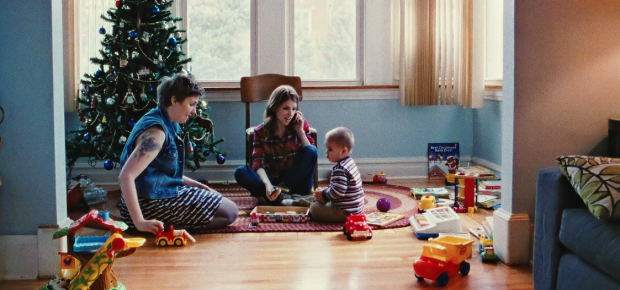
While it was far from a large-scale effort, Joe Swanberg stepped up his game with Drinking Buddies, marking his highest profile film yet in both cast and budget, and he’s now set to follow it up with a Christmas-themed drama, one that will hopefully continue his knack for authentic characters. Starring Anna Kendrick, Melanie Lynskey, Mark Webber, Lena Dunham, and Swanberg himself, the story follows a woman who moves into her brother’s house following a break-up. Reviews were fairly positive out of Sundance, and this summer, it’ll get a VOD and theatrical release thanks to Magnolia, something we’re looking forward to. – Jordan R.
Magic in the Moonlight (Woody Allen; July 25th)
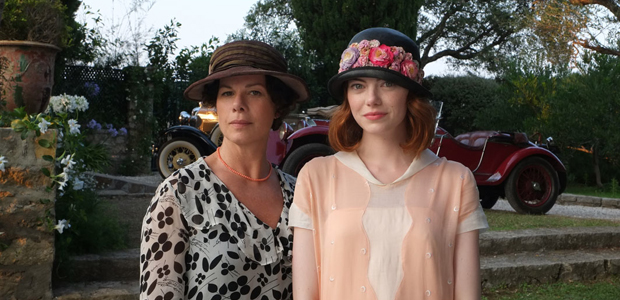
Woody Allen is still more hit-and-miss than the fond memories of Midnight in Paris or Blue Jasmine might lead most to believe — this comes from a mild defender of Whatever Works, no less — but we’ll put some sight-unseen stock in a France-set period piece led by Colin Firth and Emma Stone. What specific things transpire from that point forward will remain to be seen; in the meantime, fingers remain crossed that the fine-tuned qualities of his prior outing have carried over to something (we assume) refreshingly different. – Nick N.
A Most Wanted Man (Anton Corbijn; July 25th)
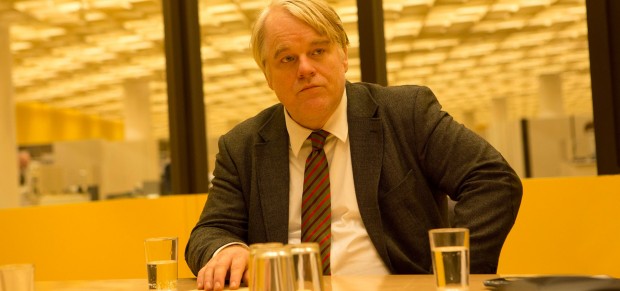
Anton Corbijn‘s The American is a restrained, absorbing and visually staggering story of an assassin on his final mission, but the marketing sold it as star-powered, edge-of-your-seat thriller. With his follow-up, an adaptation of the John le Carré novel A Most Wanted Man, those expecting the former might be disappointed, as it sways to the latter, resulting in an above-average thriller that could have used a more unconventional visual approach. – Jordan R. (full review)
Calvary (John Michael McDonagh; August 1st)
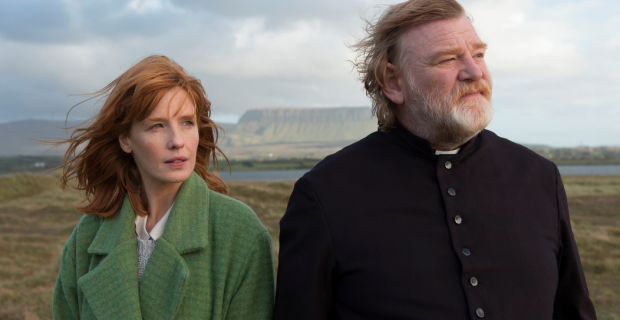
Calvary opens hard on Father James (Brendan Gleeson) sitting in his confessional, listening to his parishioners’ sins. In comes a scarily calm voice from the other side of the confessional, telling Father James he’s going to be killed in a week’s time in retribution for terrible sins committed by a terrible priest. It’s a memorable way to open a film, and Gleeson does well in wearing the threat on his face throughout the picture. A kindly priest with a long history of sin, Calvary is, in its best moments, a highlight reel of how impressive an actor Brendan Gleeson is and has been. The script and direction come from John Michael McDonagh, who found considerable Sundance success with the far broader, cop-out-of-water comedy The Guard. – Dan M. (full review)
What If (Michael Dowse; August 1st)
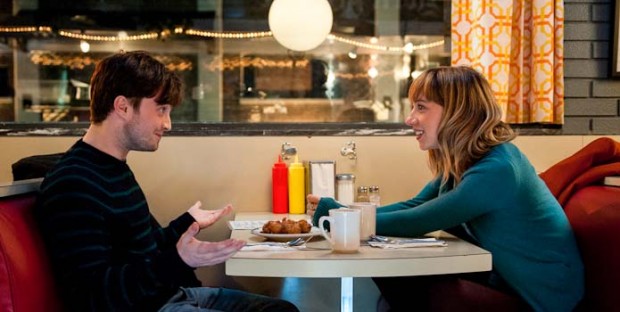
There is something relatable to the awkwardly genuine smiles of two introverts connecting with an acquired humor, made funnier by the fact everyone around them doesn’t get the joke. And for Wallace (Daniel Radcliffe) and Chantry (Zoe Kazan), that’s exactly the case — the only problem is that she already has a boyfriend. Through and through a Canadian production, from director Michael Dowse to screenwriter Elan Mastai to the playwrights of Toothpaste and Cigars, which he adapted (T.J. Dawe and Michael Rinaldi) to composer A.C. Newman (of The New Pornographers fame) to the setting of the same Toronto, Ontario streets I walked before my screening, What If is a quaint bit of real life infused with the usual rom/com quirks. – Jared M. (full review)
The One I Love (Charlie McDowell; August 15th)
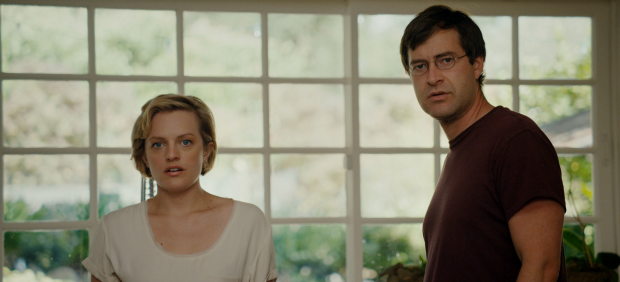
The driving force behind the very clever two-handed chamber piece The One I Love is communication. How we talk to those we love and those that love us. Mark Duplass and Elisabeth Moss play Ethan and Sophie, a married couple at a crossroads. When we meet them, they’re engaging in some silly-looking couples therapy with a very aloof Ted Danson. At the end of one of their sessions, the good doctor recommends that the couple take a retreat to a nearby cottage for the weekend and “reset the reset button.” – Dan M. (full review)
The Trip to Italy (Michael Winterbottom; August 15th)

If all one needs to make a movie if a girl and a gun, as per Godard, then perhaps all you need to make a good comedy is two guys in a restaurant, talking about nothing. That’s the basic gist of Michael Winterbottom‘s The Trip and the basic gist of his sequel, The Trip To Italy. Returning are comedian-actors Steve Coogan and Rob Brydon, this time traveling around Italia to eat well and write well as a follow-up to the foodie piece they wrote (or rather Rob wrote) the first time around. – Dan M. (full review)
Frank (Lenny Abrahamson; August 22nd)
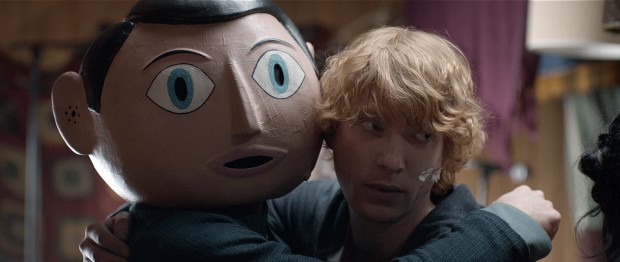
There’s no definitive path on the unwieldy journey that is the creative process. We’ve seen countless films tackle various approaches in an attempt to find an answer, but it’s never quite been done in the vein of Lenny Abrahamson‘s peculiar, occasionally aimless, and ultimately resonant Frank. While the initial draw is perhaps Michael Fassbender in the role of our strange title character, loosely based on the late Chris Sievey, our focal point is that of Jon (Domnhall Gleeson), whom we meet as an aspiring musician who can’t seem to conjure any worthwhile lyrics. – Jordan R. (full review)
Love is Strange (Ira Sachs; August 22nd)
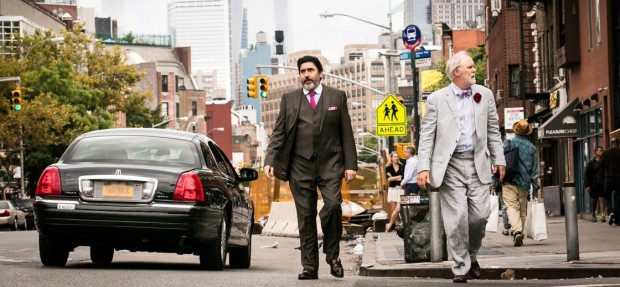
After the authentic relationship drama Keep the Lights On (reviewed here) writer-director Ira Sachs has returned with Love is Strange. Led by John Lithgow and Alfred Molina, the project finds the actors playing a NYC-based couple who decided to wed after a 38-year-relationship. Also starring Marisa Tomei and Cheyenne Jackson, reviews were strong out of Sundance for what’s shaping up to be another tenderly realized drama from Sachs. – Jordan R.
The Congress (Ari Folman; August 29th)
Trippy, bizarre, surreal and hallucinatory are all excellent adjectives with which to describe Ari Folman‘s The Congress. Adapted from a novel by legendary sci-fi author Stanislaw Lem (Solaris), the film is a hybrid of live-action and mind-bending psychedelic animation; as this is the filmmaker’s follow-up to Waltz with Bashir, those familiar with that title know that Folman is far from a traditional filmmaker. Delightfully surreal and spectacular in its scope, The Congress is a strong testament to the originality and talent behind Folman’s vision of where cinema can take us in the years to come. – Raffi A. (full review)
Starred Up (David Mackenzie; August 29th)
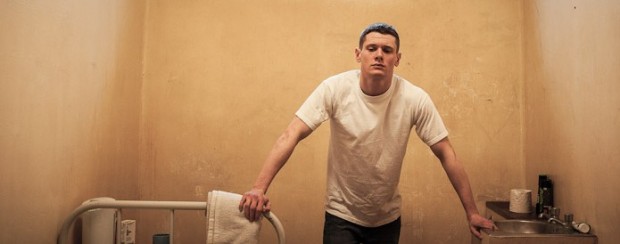
In an opening sequence, as he’s arriving to adult prison, Eric (Jack O’Connell) is given a thorough inspection in a moment that clues us in to the kind of movie Starred Up will be: a no-holds barred, explicit exploration of prison culture. Directed by David Mackenzie (Mister Foe, Perfect Sense), Starred Up is a more extreme and, often, more exciting exploration of themes MacKenzie has previously tackled. Eric, a violent drifter of sorts, grows up without a proper parent, learning to fend for himself — and, in a later scene, we learn the exact consequences of this and how it got him to this present state. Eric, for the first time in his adult life, meets his father, Neville (Ben Mendelsohn), a hardened criminal who encourages his son to play the game. A product of the “system,” he wants Eric to simply go along, keep his head down, and get out. Needless to say, it’s an irritation when his son starts making connections and plans. – John F. (full review)
Stray Dogs (Late Summer TBD)
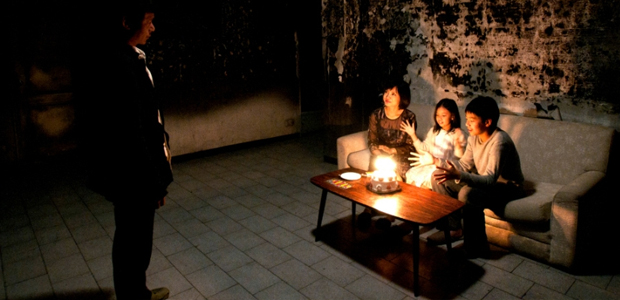
Presumably Tsai Ming-liang‘s final feature, Stray Dogs appropriately sees slow-cinema, an art film “movement” of which he’s considered one of the defining members, at its most extreme. With shots lasting around ten minutes in length — and, more often than not, displaying acts ranging from mundane to outright inactive; in particular, an extended “climax” that’s simply two people looking at a mural — the film could easily be described as “difficult.” Yet while it becomes an even trickier narrative piece by the final third, venturing into the obtuse (or as my interpretation sees it, the afterlife), the film’s emotions are always crystal clear. Tsai’s form doesn’t adhere to the tenets of stylized realism with some distancing anthropology, but displays an intimacy of character, setting, and, above all, time. No wonder we come to look at two still figures as a living, breathing version of the very mural they’re turned to tears by. – Ethan V. (full review)
What films are you most looking forward to this summer?

